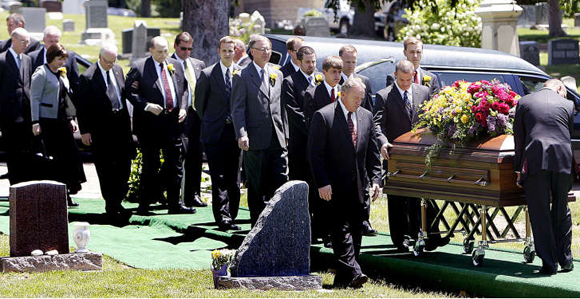Have you been asked to write an LDS Funeral Talk? It’s a daunting proposition. Fortunately, there are some guidelines you can use. When crafting your speech, you might also consider incorporating meaningful elements like memorial lockets to honor the memory of your loved one.
Tip 1: Speak Words of Comfort
“A comforting, spiritual funeral is of great importance. It helps console the bereaved and establishes a transition from mourning to the reality that we must move forward with life. Whether death is expected or a sudden shock, an inspirational funeral where the doctrines of resurrection, the mediation of Christ, and certainty of life after death are taught strengthens those who must now move on with life. ( Boyd K. Packer, “Funerals: A Time for Reverence”)
At the funeral of a 3-year old child in Utah who was related to Elder Rasband of the Seventy and had been mentioned in General Conference, the Deseret News made the following account of Elder Jeffrey R. Holland’s statements, which may prove useful to someone planning a funeral talk:
“We extend our heartfelt sorrow and sympathy to you and your family. As parents and grandparents, we understand the sorrow you feel at this tender time of parting with a beloved child,” Elder Holland read. “The Savior loved children, and you can be certain that Paxton is now a recipient of the Lord’s love in that sphere where he will await a happy reunion with those he left here on earth.
“Although there is no substitute for the physical presence and affection of one so loving and so young, we pray that you will receive the blessed assurance that Paxton is perfectly happy and once again with our Father in Heaven.” …
“This is a sad day of parting, but it is not a tragic day of death,” Elder Holland said as he rejoiced in the knowledge of Jesus Christ’s atonement and resurrection. “I testify that Paxton Norton is this very moment rejoicing in the spirit world, a paradise prepared for just such a pure, beautiful and innocent spirit.” (3-year-old Paxton Norton remembered by friends, family and LDS general authorities, By Sarah Petersen, Deseret News Published: Monday, July 22 2013)
Tip 2: Use Humor Thoughtfully
“Sometimes family members tell things that would be appropriate at a family reunion or at some other family gathering but not on an occasion that should be sacred and solemn. While quiet humor is not out of order in traditional or Asian funerals, it should be wisely introduced. It should be ever kept in mind that the funeral should be characterized by spirituality and reverence….” ( Boyd K. Packer, “Funerals: A Time for Reverence“)
Tip 3: Maintain a Spirit of Reverence:
“We are close, very close, to the spirit world at the time of death. There are tender feelings, spiritual communications really, which may easily be lost if there is not a spirit of reverence.” (Bruce R. McConkie, Mormon Doctrine 2nd Edition, “Funerals”)
Tip 4: Share the Good Qualities and Achievements of the Deceased
Below is a link to the first of nine videos of Gordon B. Hinckley’s funeral. Watch the videos and take note of the way that President Hinckley’s friends and family speak about him:
Tip 5: If you didn’t know the deceased well or at all …
… don’t start with an apology, like “I didn’t know Jane (well), but _____”. This type of statement can be insulting or hurtful.
If you didn’t know the individual, it’s probably expected that you briefly talk about soul-saving doctrines of the gospel. You don’t need to make judgments or observations about the life or actions of the deceased. Don’t berate the audience or call them to repentance. Be brief, clear, and thoughtful as you share the plan of happiness with the grieving. After your talk, you can also offer to help the family find flat grave markers for their loved one or accompany them to the cremation services to show your support and sincerity.
More LDS Funeral Information
Find out How to Plan an LDS Funeral, including how to prepare a deceased body for burial, dressing the body in temple clothes, family prayer information, preparing a family meal, and other Mormon funeral traditions.


